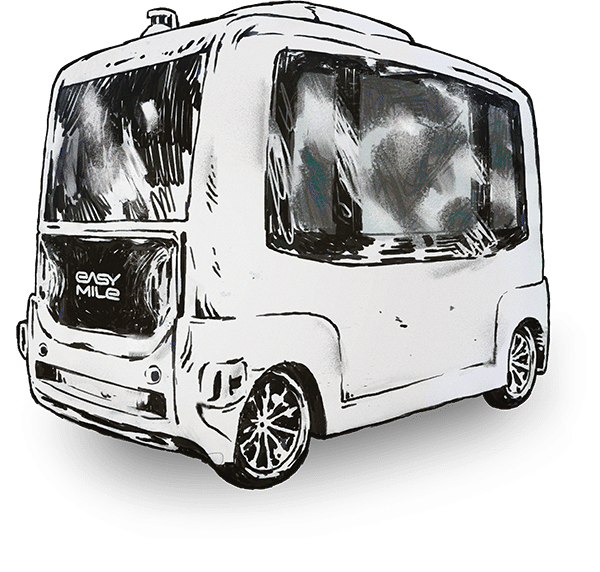KelRideWeather-ProofSmart Shuttle
Travel Autonomously from A to B within Kelheim.
What will mobility look like in the future? It is a difficult thing to predict with any certainty. What is certain, however, is that thanks to innovative research projects, the future has already started in today’s world. One research project based on high-tech forms of transportation is the KelRide project. What lies behind it is described in detail on these pages.

KelRide in a nutshell.

KelRide is a research project...
funded by the German Federal Ministry for Digital and Transport (BMDV) as part of the “Digitalization and Artificial Intelligence in Mobility” action plan. KelRide started in March 2021 and will be fully implemented in the Kelheim district by December 2023.
The aim of the project is...
…to integrate an autonomous on-demand ridepooling service into the public transportation network, which can be operated in all weather conditions. Weather-independent operation in particular still poses major hurdles for autonomous vehicles.
KEXI is the on-demand transportation service that has been in place in the Kelheim district since July 2020. It...
…forms the framework for the practical implementation of the sponsored KelRide project. As a result, a mixed KEXI fleet consisting of autonomous and conventional vehicles will be in operation at the end of the project period. In the first instance, a third conventional vehicle will reinforce operation of KEXI beginning in July 2021. Then, from July 2022, autonomous vehicles will gradually be integrated into on-demand operations.



